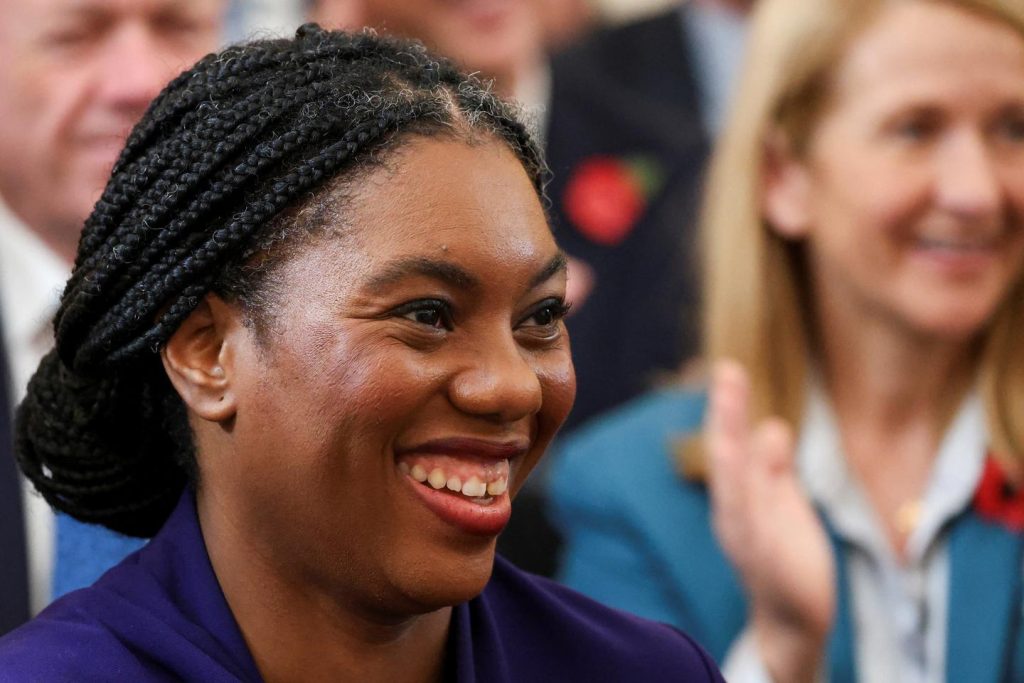Kemi Badenoch was elected as the new leader of the British Conservative Party on Saturday, November 2nd, in opposition to the United Kingdom. She garnered nearly 57% of the votes after a three-month campaign, positioning herself as a staunch supporter of a return to “true conservatism” and strict immigration policies. Badenoch, an engineer by training, was born in the UK to Nigerian parents and grew up in Africa before returning to England at the age of 16. She is the first black woman to lead one of the major political parties in the UK.
After being elected, Badenoch emphasized the need to speak the truth, defend principles, plan for the future, rethink policies, and give the party and the country the fresh start they deserve. She has held various ministerial positions under Prime Minister Boris Johnson since 2019, and was promoted by his successors Liz Truss and Rishi Sunak. Badenoch previously attempted to lead the party in 2022 but was unsuccessful. Her tenure as leader will focus on revitalizing the weakened Tory party, which suffered a significant defeat in the July 4th elections, losing two-thirds of its MPs in the House of Commons.
The Conservative Party faced backlash in the recent elections due to their handling of issues such as Brexit, austerity measures affecting public services, and scandals under former Prime Minister Boris Johnson. Badenoch’s appointment has raised questions about her ability to unite and rebuild a deeply divided party, and her move towards a more right-wing agenda. Her straightforward and outspoken nature has appealed to the party base but has also caused controversy within her own ranks.
During her campaign, Badenoch advocated for a return to traditional conservatism without detailing her specific policies. The rise of the far-right Reform UK party in the legislative elections brought immigration to the forefront of the campaign. Badenoch made immigration a top priority, stating that it was not beneficial for the country and controversially suggesting that “not all cultures are equal.” She has been critical of identity politics and has accused the Conservative Party of becoming too liberal on societal issues such as gender and environmental neutrality goals.
According to conservative Michael Ashcroft, who wrote a biography on Badenoch, she became more radicalized within the party during her university years, interacting with what she referred to as “an emerging metropolitan elite, spoiled, privileged, and pretentious.” Badenoch’s leadership marks a significant shift for the Conservative Party, as she challenges the party’s stance on key social and environmental issues. Her election highlights the growing divide within the party between traditional conservative values and more progressive ideologies, setting the stage for a period of significant change and potential conflict within the party.


